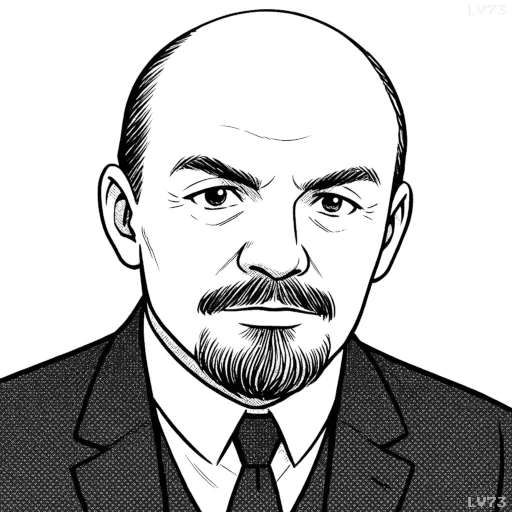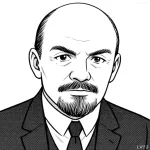“One man with a gun can control 100 without one.”

- April 22, 1870 – January 21, 1924
- Born in the Russian Empire
- Revolutionary, political theorist, lawyer, state leader
table of contents
Quote
“One man with a gun can control 100 without one.”
Explanation
This quote reflects Lenin’s recognition of the importance of force and coercion in maintaining control, especially in times of political instability or revolution. He suggests that physical power, symbolized here by a man with a gun, is a critical tool for maintaining authority and ensuring dominance. Lenin acknowledges that the ruling class or government does not solely rely on ideological support or moral authority but often depends on the ability to physically enforce its will. The quote highlights the role of violence and intimidation in shaping political power, where those who control the means of force can easily subjugate those who do not.
Historically, this quote can be linked to Lenin’s experience during the Russian Revolution and the Civil War that followed. The Bolshevik victory in 1917 was not solely the result of ideological support or mass movements but also due to the effective use of military force, particularly through the Red Army. Lenin and the Bolsheviks understood that political power could not be maintained without military strength, and the state’s ability to control armed forces was crucial to suppressing opposition. The use of force, coercion, and suppression of dissent became central elements of Soviet rule, especially during the Red Terror.
In modern terms, this quote speaks to the role of military and police power in the enforcement of political regimes. It suggests that physical force is often used to back up political authority, whether in authoritarian regimes or during periods of conflict and unrest. Lenin’s words are a reminder of how power dynamics often depend on control over force, and how those who lack the means of violence may find themselves vulnerable to domination by those who possess it. This raises important questions about how political systems can balance authority and coercion, and whether the right to use force is ever justifiable in maintaining order and stability.
Would you like to share your impressions or related stories about this quote in the comments section?
